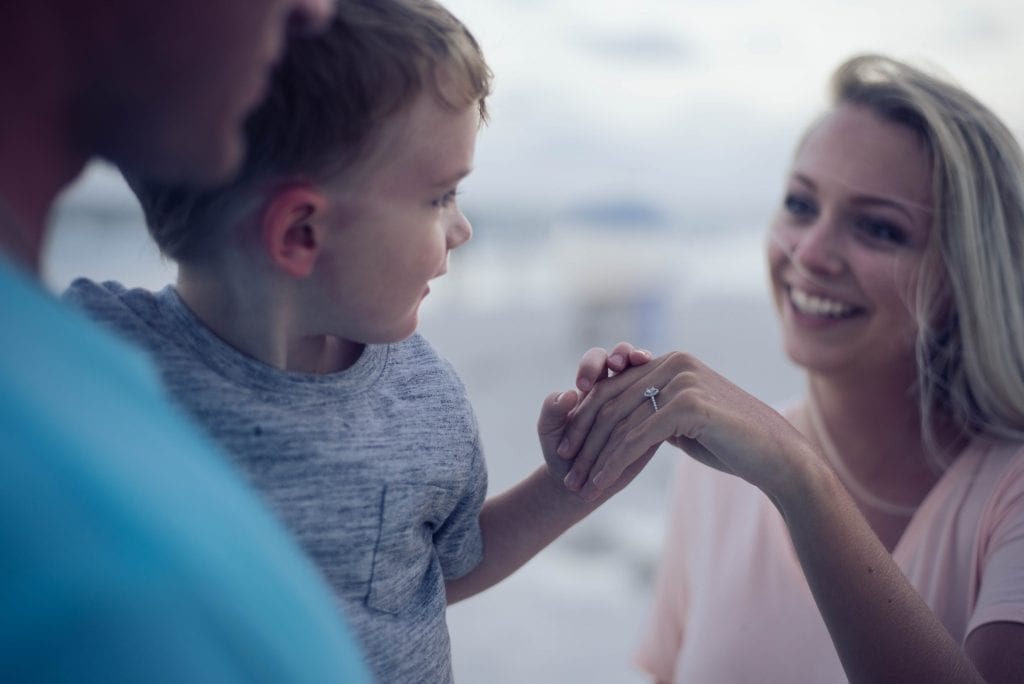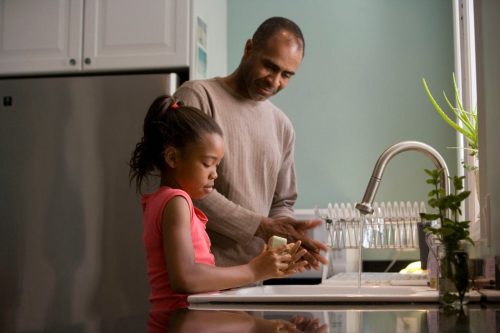When it comes to parenting in the COVID-19 era, the onslaught of “new normal” practices is, frankly, exhausting. But parents everywhere are rising to the occasion and finding ways to adjust.
In the realm of co-parenting – the term used most for parents who are divorced, separated or not in a relationship with each other – the challenge is especially real. Conflicts about shared custody, safety protocols and court-ordered support payments are on the rise. Family law attorneys are being inundated with calls and questions about co-parenting daily.

Communication, consideration and cooperation are key to co-parenting that is best for your child. Photo by Jonathan Daniels on Unsplash
Some of the more frequent inquiries are:
- Can I have visits with my child during quarantine?
- I don’t live near my child’s mother or father. How can I visit?
- My former spouse cleans offices for a living. I’m scared for them to have custody. What should I do?
- I need to work, and my co-parent isn’t helping with childcare. What do I do?
There are also questions about financial support, and the list goes on and on.
I sat down with Judge Sherrill A. Ellsworth, co-founder of the parenting app CoParenter and past presiding judge of Riverside County, and Laura Wasser, author of “It Doesn’t Have to Be That Way: How to Divorce Without Destroying Your Family or Bankrupting Yourself” and founder of It’s Over Easy online divorce services.
Ellsworth and Wasser agree that the first step during this unprecedented time is to take a deep breath and think before you act. Understand that you are in a very different situation. Take away the animosity for the moment. “It doesn’t make a lot of sense to go rushing to an attorney at this point, because most of the courts are closed, and you are not going to get a hearing,” says Wasser. “The courts are only dealing with domestic violence cases. So, save money and save your child’s emotional wellbeing during this time.”
First, think about what you need to do now. “This is about empowering parents to do the best thing for their family financially, emotionally and at this time for safety purposes,” says Ellsworth. “At the heart of this is keeping children safe and families safe. How can we plan for right this minute?”
Both experts advise discussing crucial questions together and putting everything in writing. You can always revise and readjust later. Here are a few things to consider:
- Who is an essential worker?
- Whose health might be especially at risk due to underlying conditions?
- What is the family’s safety plan? All must adhere to it.
- Whose household is safest?
- Can co-parents safely exchange custody?
- How can co-parents remain consistent during this time and keep the children’s needs at the forefront?
- What is the schedule for each parent to see their child who might be sheltering in place in the other parent’s home?
- What is the plan for making up days missed?
- What is the “new normal” schedule in relation to school, chores and tech time?

Wasser believes that what she calls the “three Cs” will also help. “Even without a global crisis, we generally try to recommend that parents try to adhere to the three C’s: communication, consideration and cooperation,” she says, “and really, really listen to each other, keeping in mind that there are court orders in place and to the extent that you can adhere to those court orders, you should do so.”
Wasser’s CoParenter app is designed to help parents get through the most trying times. It is dedicated to eliminating high-conflict divorce from the list of adverse childhood experiences (ACES). According to co-founder Jonathan Verk, the platform has helped divert more than 20,000 cases from family courts. The app allows users to resolve disputes online in real time with a qualified mediator, and also helps them manage co-parenting duties via a calendar, messaging and journaling functions.
Start by taking that breath, as Ellsworth and Wasser suggest, and resolve to find ways to agree and to settle disputes during these difficult times. Along the way, practice compassion for yourself, your ex and, most importantly, for your children. If we rethink how our actions and words impact our children’s health and wellbeing, this situation could create a reset for the entire extended family.
Donna Tetreault is a journalist and host of the podcast Kids Under Construction.

